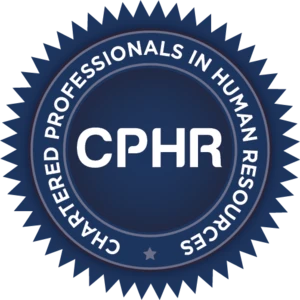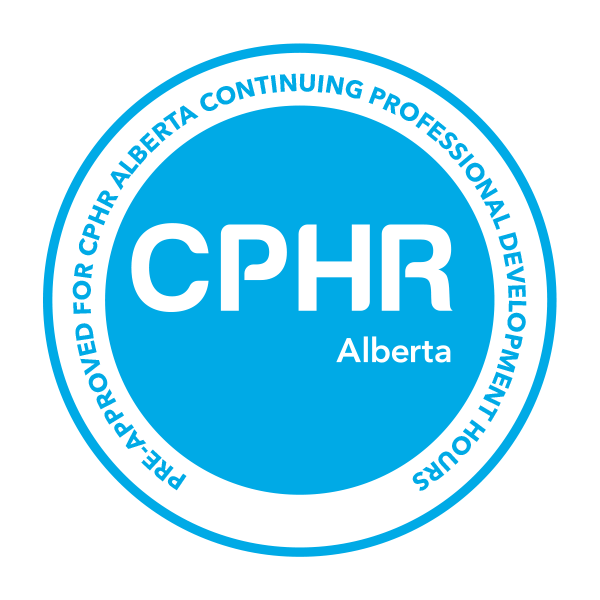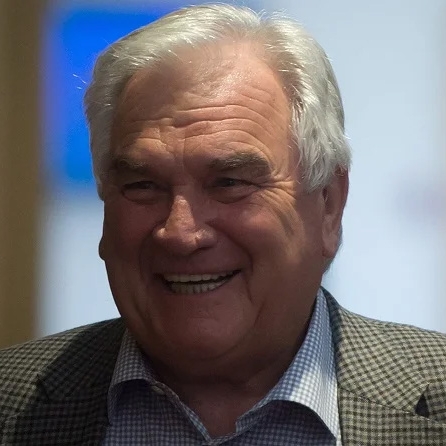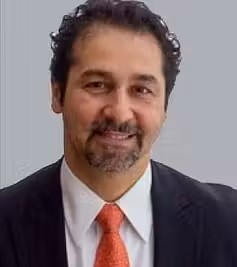Bargaining in the Broader Public Sector Conference
Co-chairs
Conference Advisory Committee
Ashkon Hashemi
Senior Member Services Officer, Labour Relations
UBC Association of Administrative and Professional Staff
Jeanne Meyers
Executive Director and General Counsel
Health Sciences Association of British Columbia (HSABC)
Labour Arbitration and Policy Conference
Conference Co-Chairs
Conference Advisory Committee
Tuesday, November 19, 2024
Workshop
*Workshop sold separately from stand-alone conference.
| Time | Schedule |
|---|---|
| Breakfast | 8:00 am – 9:00 am PT |
| Workshop | 9:00 am – 10:25 am PT |
| Morning Break | 10:25 am – 10:40 am PT |
| Workshop | 10:40 am – 12:00 pm PT |
| Lunch | 12:00 pm – 1:00 pm PT |
| Workshop | 1:00 pm – 2:20 pm PT |
| Afternoon Break | 2:20 pm – 2:35 pm PT |
| Workshop | 2:35 pm – 4:00 pm PT |
| Workshop Ends | 4:00 pm PT |
Bargaining In The Broader Public Sector Conference Workshop
Ryan Goldvine
Mediator/Arbitrator
Goldvine Dispute Resolution Services
Part-Time Member
BC Employment Standards Tribunal
In this interactive, full-day workshop, experts will help participants hone their bargaining skills, with a focus on overcoming negotiation challenges, determining the cost of benefits, and crafting collective agreement language. By examining both employer and union-side perspectives and delving into case scenarios, attendees will gain expertise necessary to determine the cost of benefits, including intangible benefits such as wellness programs, and craft clear, compelling, and innovative collective agreement language.
Wednesday, November 20, 2024
Bargaining in the Broader Public Sector Conference
Breakfast: 8:00 am – 9:00 am PT
Opening Remarks: 9:00 am – 9:05 am PT
James Johnson
Associate Professor, Economics
University of British Columbia (UBC)
Member and Chief Negotiator,
UBC Faculty Association Bargaining Team
Kevin Milligan
Professor and Director, Vancouver School of Economics
University of British Columbia (UBC)
In this session, expert panelists will explore 2025 economic and fiscal forecasts and their implications for bargaining, focusing on settlements and awards, and addressing questions such as:
- What short- and long-term economic trends are experts predicting Canadians will experience in 2025 in British Columbia? Canada? The United States?
- Are inflation and cost-of-living projected to increase in 2025?
- How has the increase of the British Columbia minimum wage to $17.40 impacted bargaining? How will it impact future bargaining?
- What key non-monetary demands are emerging at the bargaining table in the current climate?
- What measures are governments likely to prioritize in 2025 provincial and federal budgets to promote economic growth and prosperity?
Break: 10:20 am – 10:35 am PT
Leanne Anderson
Member Services Officer, Advocacy
UBC Association of Administrative and Professional Staff
Addressing Equity, Diversity, and Inclusion (EDI) at the bargaining table is critical for complying with legal requirements, cultivating workplaces that nurture diverse talents, and enhancing organizational culture. In this panel, experts will provide guidance on building a more equitable workplace through collective bargaining, addressing the following:
- What steps should unions and employers take to identify equity issues in the workplace? What information should be gathered in preparation for bargaining on these issues?
- What questions should guide unions and employers in reviewing collective agreements and bargaining proposals through an equity lens?
- How might existing collective agreement language and definitions be written or revised to ensure that they are equitable and inclusive?
- How can unions and employers measure the effectiveness of negotiated programs or provisions on equity issues?
Break: 11:45 am – 12:00 pm PT
Lunch: 12:30 pm – 1:25 pm PT
In this session, panelists will examine recent decisions, legislative changes, and other developments impacting bargaining in the public sector. Final topics will be selected in the weeks prior to the conference to ensure coverage of the latest and most important developments. Topics currently include:
- The impact of recent court decisions concerning freedom of association and the legality of legislation restricting collective bargaining;
- The impact of recent arbitral awards, including grievance arbitration decisions addressing key principles of collective agreement interpretation;
- The impact of recent labour board decisions addressing issues such as unfair labour practices, illegal strikes, good faith bargaining, and statutory freeze violations;
- Recent legislative initiatives including:
- Federal legislation to ban the use of strike replacement workers; and
- C.’s ongoing review of the Labour Relations Code;
- Recent noteworthy settlements and strike actions; and
- Current workplace trends, including privatization, remote work, and the right to disconnect.
Break: 2:35 pm – 2:50 pm PT
Workplaces must ensure that their use of technology complies with existing laws relating to employee privacy and human rights, while also grappling with new areas where the law has not yet been extensively developed – such as the use of artificial intelligence (AI). In this panel, experts will examine how collective bargaining can be used to address the complex and wide-ranging issues emerging from using technology in the workplace. Panelists will explore:
- What current issues related to using technology in the workplace should employers and unions address at the bargaining table?
- What issues resulting from the use of AI in the workplace should be addressed through collective bargaining? What lessons can be learned from collective agreement language that has addressed past technological changes?
- What information is available to employers using AI, monitoring, and surveillance technologies? Are employees entitled to information about how their employer is using AI, monitoring, and surveillance technologies? How much say do unions and their members currently have in what employee information employers collect and how it is used?
- What specific risks do emerging technologies such as “algorithmic management” present for employees’ right to privacy and non-discrimination? How can collective bargaining be used to protect against these risks and address concerns of both employers and unions?
- How have arbitrators treated the use of emerging monitoring and surveillance technologies intended to measure employee productivity? What lessons can be learned from these decisions when negotiating collective agreement language?
- Do employers have a right to conduct off-duty surveillance of employees? What limits exist on off-duty surveillance? How should these concerns be addressed through collective agreement language?
- What are some examples of collective agreement provisions addressing AI, technology, and employee privacy?
Closing Remarks: 4:00 pm PT
Thursday, November 21, 2024
Labour Arbitration and Policy Conference
Breakfast: 8:00 am – 9:00 am PT
Opening Remarks: 9:00 am – 9:05 am PT
In this panel, experts will address recent cases and legislative developments impacting federally and provincially regulated workplaces.
Panelists will discuss the latest cases on the following topics:
- Discipline and dismissal;
- Discrimination, harassment, and accommodation;
- Workplace investigations;
- Privacy and computer access;
- Refusal to vaccinate;
- Remote work; and
- Collective bargaining and the right to strike.
Panelists will also examine recent legislative initiatives:
- An increase in B.C.’s minimum wage;
- Amendments to workers’ rights to strike under B.C.’s Labour Relations Code;
- Employers’ and workers’ duties under B.C.’s Workers Compensation Act;
- Gig workers’ rights in B.C.;
- Employers’ obligations under the federal Accessible Canada Act; and
- Changes to the Canada Labour Code regarding termination and the “right to disconnect.”
Final selection of topics will take place in the weeks leading up to the conference, ensuring coverage of the latest developments.
Break: 10:35 am – 10:50 am PT
In this session, panelists will examine recent amendments to B.C.’s Workers Compensation Act which introduce a new “duty to cooperate” and “duty to maintain employment.” Speakers will address questions including:
- What new obligations are imposed on workplace parties under the “duty to cooperate” and “duty to maintain employment”? When and to whom do these duties apply?
- What changes should employers consider making to workplace policies in order to ensure compliance with these duties? What unique challenges may arise in fulfilling these duties in a unionized workplace? What role exists for unions in the implementation and enforcement of these duties?
- Must an employer or worker file a complaint with WorkSafeBC in order to trigger an investigation into the parties’ compliance with these duties? Or can WorkSafeBC initiate an investigation into parties’ compliance on its own initiative?
- Where a breach of the duties has been alleged or is being investigated, what rights do parties have to provide and receive information, make submissions, and challenge any determination reached?
- What consequences may follow if WorkSafeBC determines that a party has failed to comply with its obligations under these provisions?
- Should claims relating to an employee’s return to work be advanced through labour arbitration, a human rights tribunal proceeding, or through WorkSafeBC? Can parties expect to face procedural arguments that WorkSafeBC has exclusive jurisdiction over aspects of their claim?
Break: 11:45 am – 11:55 am PT
Fibromyalgia, chronic fatigue syndrome, and increasingly long COVID (Post COVID-19 Condition) are medical conditions that can have significant impairment that is not obviously visible in the workplace. There are no definitive objective tests that can demonstrate the severity of these conditions, so the question remains: how is impairment assessed in these conditions? If impairment is reliably established, then, if appropriate, what are some reasonable accommodations that can result in greater workplace satisfaction, attendance, and productivity for individuals with these conditions? The presentation aims to discuss current evidence and approaches to both issues.
Lunch: 12:30 pm – 1:25 pm PT
When an employee files a complaint alleging workplace discrimination, harassment, violence, or other misconduct, an employer may take multiple pathways — short of arbitration — to resolve the complaint and restore workplace health and safety. Employers should be aware of the pros and cons of each option. In this panel, experts will explore:
- What is the difference between alternative dispute resolution (ADR), arbitration, mediation, and investigation?
- What makes an investigation effective?
- When is an employer’s duty to investigate triggered? What are the pros and cons of using ADR to resolve a complaint?
- What is the role of the union in these processes? What criteria should employers focus on when selecting an appropriate mediator, ADR expert, or investigator? When is it appropriate to use an internal versus an external investigator?
- What does it mean to ensure that investigations, mediations, and other forms of ADR are conducted through a trauma-informed lens? Does it help to promote employee health, wellness, and safety?
Break: 2:30 pm – 2:45 pm PT
How can employers balance freedom of expression under the Charter with the need to maintain a productive and respectful workplace? In this session, panelists will address:
- Do employees have the right to express their views on potentially controversial and/or political matters at work?
- What criteria should employers and unions consider when determining whether an employee’s speech or actions pose a legitimate concern to the organization’s reputation or operations? What actions should employers or unions take when employees’ expressions may border on being disrespectful or offensive, but are not overtly harmful?
- Can employers monitor employee expressions outside the workplace or on social media? Can employers discipline employees for such expressions?
- What is the extent of a union’s duty to represent members who face work-related consequences for potentially polarizing beliefs or actions? When will a union’s decision not to represent a member constitute a breach of the duty of fair representation?
- How can employers and unions effectively communicate expectations regarding employee expression, appropriate workplace conduct, and appropriate off-work conduct?
Closing Remarks: 4:00 pm PT
CPD

This program has been approved by CPHR BC & Yukon for 5.25 Continuing Professional Development hours.

This program has been approved by CPHR Alberta for 5.25 Continuing Professional Development hours.
- Members of the Law Society of British Colombia may count this program for 5.25 Continuing Professional Development hours.

This program has been approved by CPHR BC & Yukon for 5.25 Continuing Professional Development hours.

This program has been approved by CPHR Alberta for 5.25 Continuing Professional Development hours.
- Members of the Law Society of British Colombia may count this program for 5.25 Continuing Professional Development hours.

The Post-Conference Workshops have been approved by CPHR BC & Yukon for 5.5 Continuing Professional Development hours.

The Post-Conference Workshops have been approved by CPHR Alberta for 5.5 Continuing Professional Development hours.
- The Post-Conference Workshops have been approved by the Law Society of British Colombia may count this program for 5.5 Continuing Professional Development hours.














































